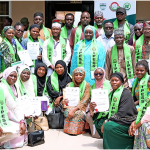



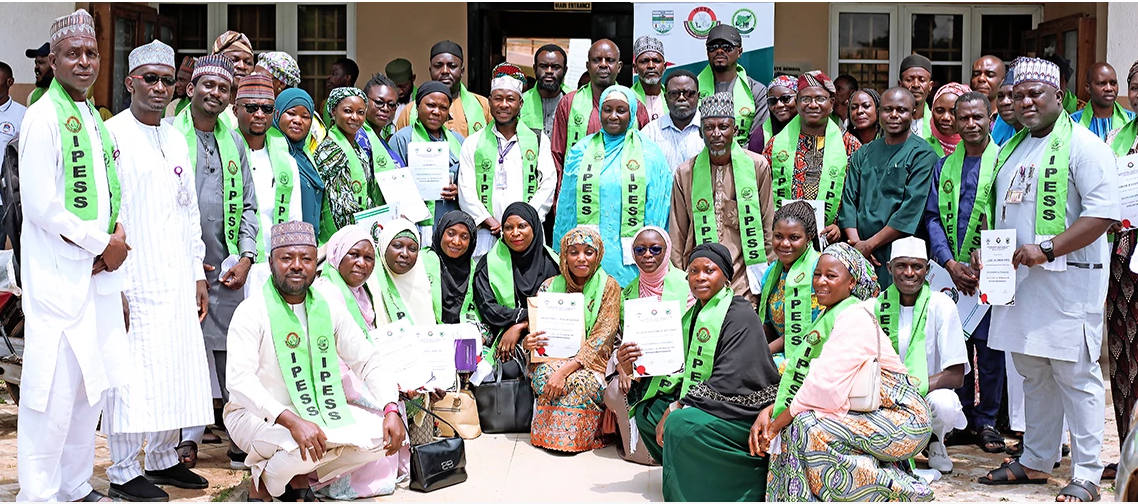

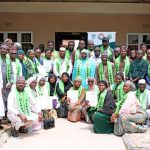
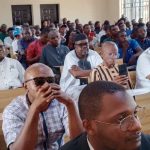
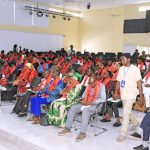


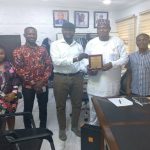

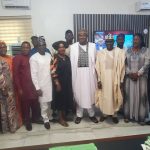
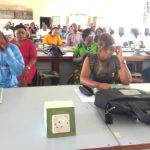
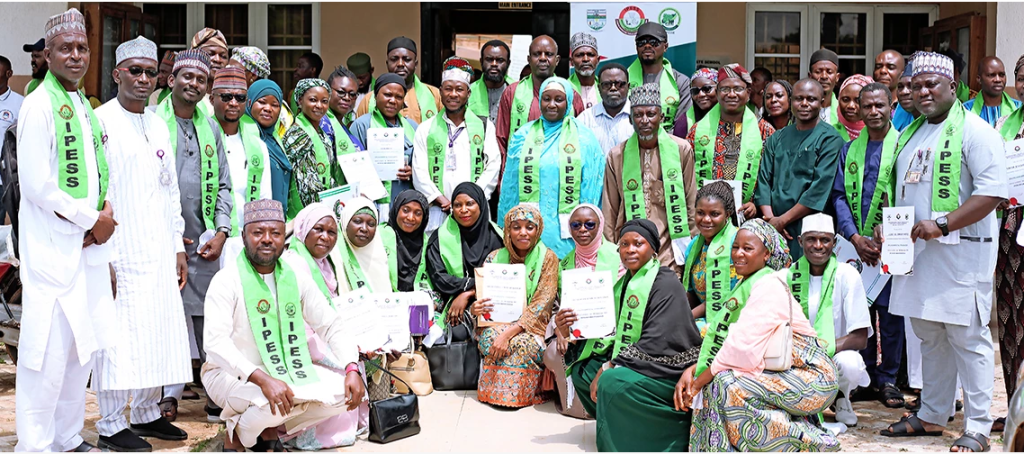
Nigeria’s ambition to diversify its economy and accelerate inclusive growth hinges on one critical element: building the right skills for the jobs of tomorrow. The Sustainable Procurement, Environmental and Social Standards Enhancement (SPESSE) Project is central to this transformation, strengthening institutional capacity and training a new generation of professionals in sustainable procurement, and environmental and social risk management.
The economy of Nigeria has grown at an average annual growth rate of 3.7 in 2023-2024 (GDP at $242 billion in 2024) and is among the largest in Sub-Saharan Africa1. Yet over 46%2 of its population lives in poverty. Weak public procurement systems contribute to inflated contract costs and corruption, while inadequate environmental and social (E&S) standards exacerbate climate vulnerabilities, conflict and gender inequalities.
Ranked 154 out of 185 on the Notre Dame Global Adaptation Index, Nigeria faces escalating climate risks such as flooding, droughts, and desertification. These challenges disproportionately affect women and youth, exacerbating social and economic instability.
Since its launch in 2020, the SPESSE project has trained over 40,000 participants—43% of them women—in procurement, environmental management, and social standards. Yet demand remains high, with over 25,000 government staff and 29,000 private firms still in need of training to build and strengthen Nigeria’s governance and development systems.
Now with $65 million in additional financing approved, the SPESSE project is scaling up—and its impacts on Nigeria’s sustainable development agenda is becoming stronger than ever.
At its core, SPESSE is about professionalization and capacity development. Through its Centers of Excellence in federal universities, the project trains thousands of Nigerians in high demand areas—procurement, environmental management, and social standards. These are not just administrative skills; they are strategic competencies that improve service delivery, attract investment, and ensure responsible development.
By scaling up these training and certification programs, the project is helping to close the current skills gap and connect young Nigerians to formal employment opportunities in emerging sectors.
One of SPESSE’s most transformative components is the rollout of an Electronic Government Procurement (e-GP) system at the federal level. This digital platform:
More importantly, it opens doors for small businesses, women-owned enterprises, and underrepresented groups. By digitizing procurement, Nigeria can create more jobs in tech, compliance and contract management, while fostering entrepreneurship.
By building capacity in agencies like the Bureau of Public Procurement, the Federal Ministry of Environment, and the Federal Ministry of Women Affairs, the SPESSE is helping create and sustain public sector jobs. These roles—ranging from procurement analysts to environmental management specialists to social compliance officers—are vital to ensuring public funds are spent efficiently and sustainably. As environmental and social standards become embedded in project planning and delivery, both government and private organizations will require certified professionals, ensuring long-term demand for these roles.
SPESSE is not just about training individuals, it is about building systems. Through investments in certification programs, policy reform, online learning platforms, and monitoring and independent evaluation, the project is laying the foundation for a self-sustaining ecosystem of professional standards in Nigeria. These mechanisms increase the project’s adaptability, long-term impact and accountability—while positioning Nigeria to attract future investments in job creation and governance.
With $65 million in additional financing now approved, the SPESSE project is scaling up to achieve an even greater impact:
The SPESSE Additional Financing represents a critical step towards Nigeria’s efforts to strengthen governance, enhance procurement transparency, and improve environmental and social safeguards. While it may not be a conventional job creation program, SPESSE is investing in people, building institutions, and shaping Nigeria’s future workforce for development works.
As Nigeria continues its journey towards inclusive growth, projects like SPESSE show that investing in standards means investing in people. And that is the key to unlocking long-term prosperity. To learn more about SPESSE or explore training opportunities, visit https://www.spesse.edu.ng
***********
1 Nigeria Bureau of Statistics (NBS) and World Development Indicators (the World Bank).
2 Matheus Buenoet all, Nigeria Development Update: Building Momentum for Inclusive Growth (English). Pg 6, Washington, D.C. : World Bank Group.





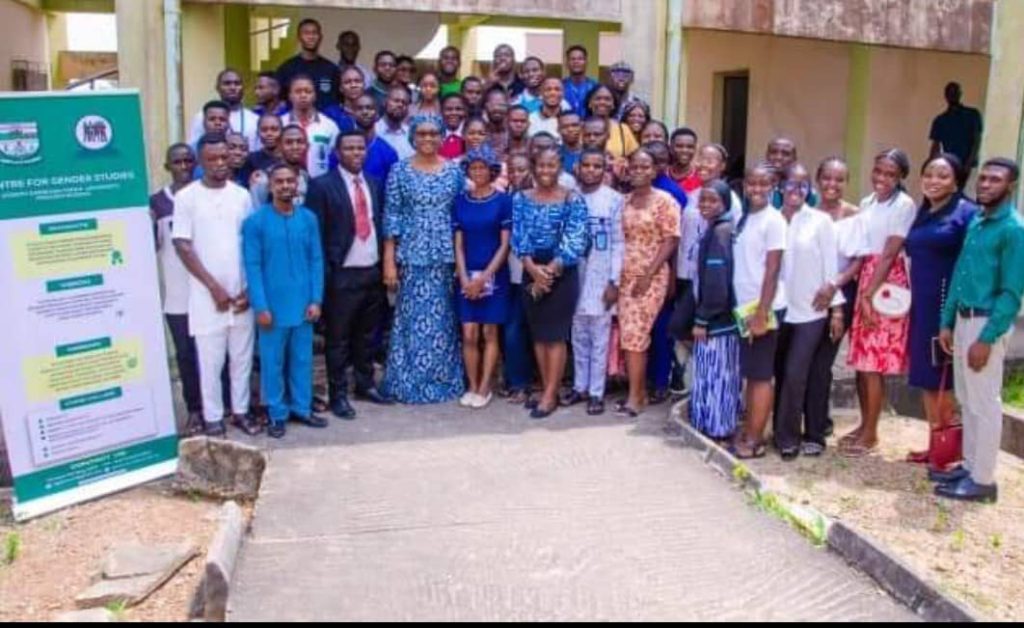
Commemorating the 2024 International Youth Day, the Center for Gender Studies, Joseph Sarwuan Tarka University, Makurdi organized a one-day symposium with the theme: “FROM CLICKS TO PROGRESS: YOUTH DIGITAL PATHWAYS FOR SUSTAINABLE DEVELOPMENT.”
The event was held on Monday, 12th August, 2024 at the College of Agricultural Economics and Extension Auditorium, North Core.
In his opening remarks, the Vice Chancellor, Engr. Prof. N.I Itodo represented by the Deputy Vice Chancellor Academic, Prof. Fidelis Ayatse charged the participants to make good use of the event as it x-rays the opportunities and challenges youths face in accessing digital technology. He urged them to utilize the knowledge to foster positive change.
In her welcome address, the Organizer and Director, Center for Gender Studies, Prof. Mrs. Orefi Abu said the International Youth Day is a day chosen by the United Nations celebrated globally every year to recognize young people’s vital contributions – and the need to release the potentials that they hold towards development and global economy. She added that the Day also recognizes their challenges and how to reduce them.
Prof. Abu noted that this year’s theme highlights the role of digital technology in achieving sustainable development goals – and draws attention to the important roles that youths play in these innovative processes.
She said that as young people, they have the ability to use their digital skills to promote sustainable development, and positive changes both within and outside our communities. She declared that the Center is ready to collaborate with the Student Union and other associations in the University to mark this day, going forward.
In the lead presentation titled “SIGNIFICANCE OF DIGITAL LITERACY FOR YOUTH EMPOWERMENT: CHALLENGES AND OPPORTUNITIES,” Dr. Chris Eche defined digital literacy as the ability to effectively and critically navigate, evaluate and create information using a range of digital technologies. He said there are two sets of people in the digital space; those who are able to critically navigate and those who are able to create information. He outlined the different levels of digital skills to include; Basic digital skills, Internet and communication skills, Information literacy, Literacy skill set, Content creation level, Cyber security and Problem solving.
Dr. Eche acknowledged that digital literacy is crucial for empowering the youth in various aspects of life from education and employment, to civic participation and personal development. He stated that while there are challenges to achieving digital literacy there are also significant opportunities to address these challenges through targeted policies, educational reforms, community initiatives, and innovative learning.
Presenting the second paper titled “YOUTH AND DIGITAL ADVOCACY: THE POWER OF SOCIAL MEDIA FOR SOCIAL CHANGE AND SUSTAINABLE DEVELOPMENT,” Dr. Mrs. Hephzibah O. Obekpa observed that in an increasingly advancing world, digital literacy has been identified as a powerful tool for driving social change. She said Social media platforms are not just for communication but powerful travel engines for organization and activism.
She pointed out that the power of the youth in digital advocacy can be explored through their unique perspectives and passion, creativity and innovation, energy and resilience, education and knowledge, social media movement, policy influence and intergenerational collaboration.
Furthermore, She explained that Social media for change and social development should be one that uses the resources responsibly with the next generation in mind – emphasizing that any change that has to be sustainable must look beyond the current generation.
Dr. Obekpa concluded that young people are not the leaders of tomorrow but change makers of today. She said digital liaising offers unprecedented opportunities for youths to amplify their voices, influence policies, and drive social change on a global scale; therefore, it is crucial that young advocates are equipped with skills, knowledge, and critical framework to navigate effectively and responsibly.
Speaking on the topic “YOUTH AND MENTAL HEALTH IN THE DIGITAL AGE” Dr. Nathaniel Iber said everybody loves good health whereas mental illness is an enemy of progress and it cuts across all ages. He noted that whenever a persons abnormal thoughts, feelings or sensory impressions cause him objective or security harm mental health is said to be present.
Dr. Iber explained that mental health could be caused by alcohol, excess stress and inability to organize time well. He opined that social media has become an integral part of youths’ lives, affecting their self esteem, body image, and overall mental well-being.
The Doctor said the impact of social media could result in anxiety and depression through cyber bullying, online harassment and digital addiction however it also provides platforms where one can seek help, like, seeking online therapy and also digital literacy and education.
In a closing remark Prof. Solomon Shola suggested that the University should enter into partnership with a Company to provide incoming students with tablets so as enhance easy access to information through their years of study.
He thanked the organizers of the event and hopes that the programme be sustained.
The event witnessed sessions of questions and answers, as well as drama presentation.
